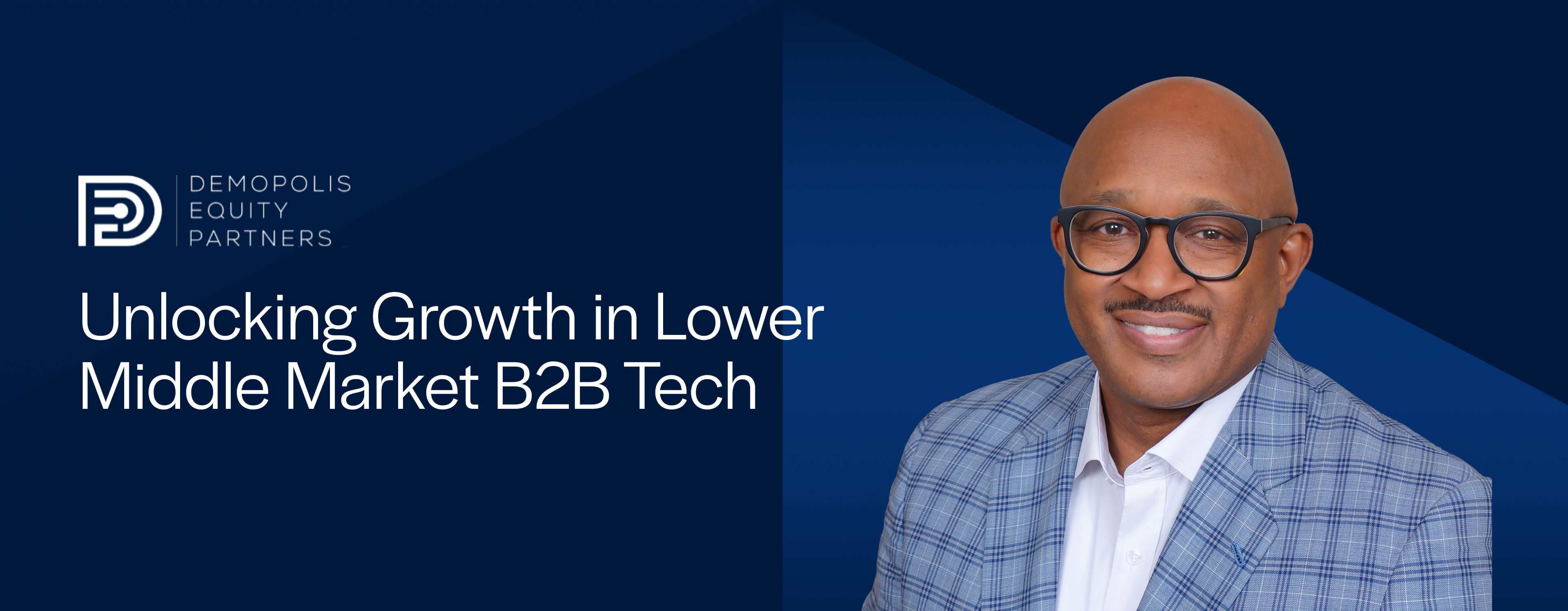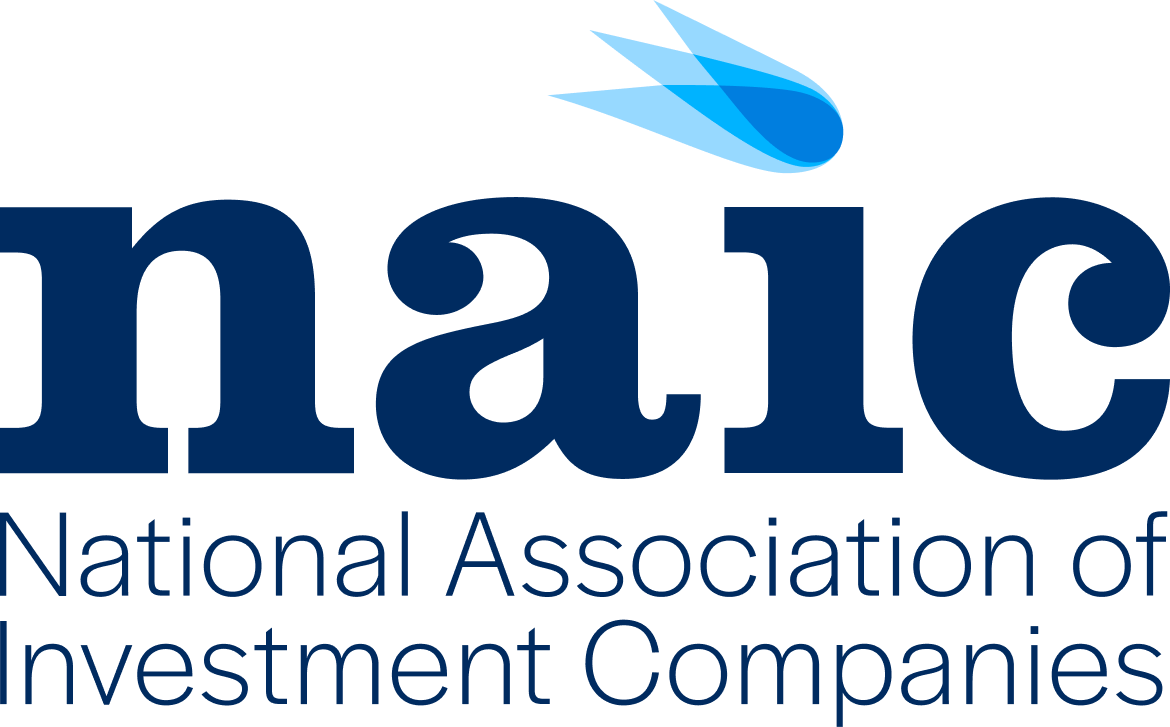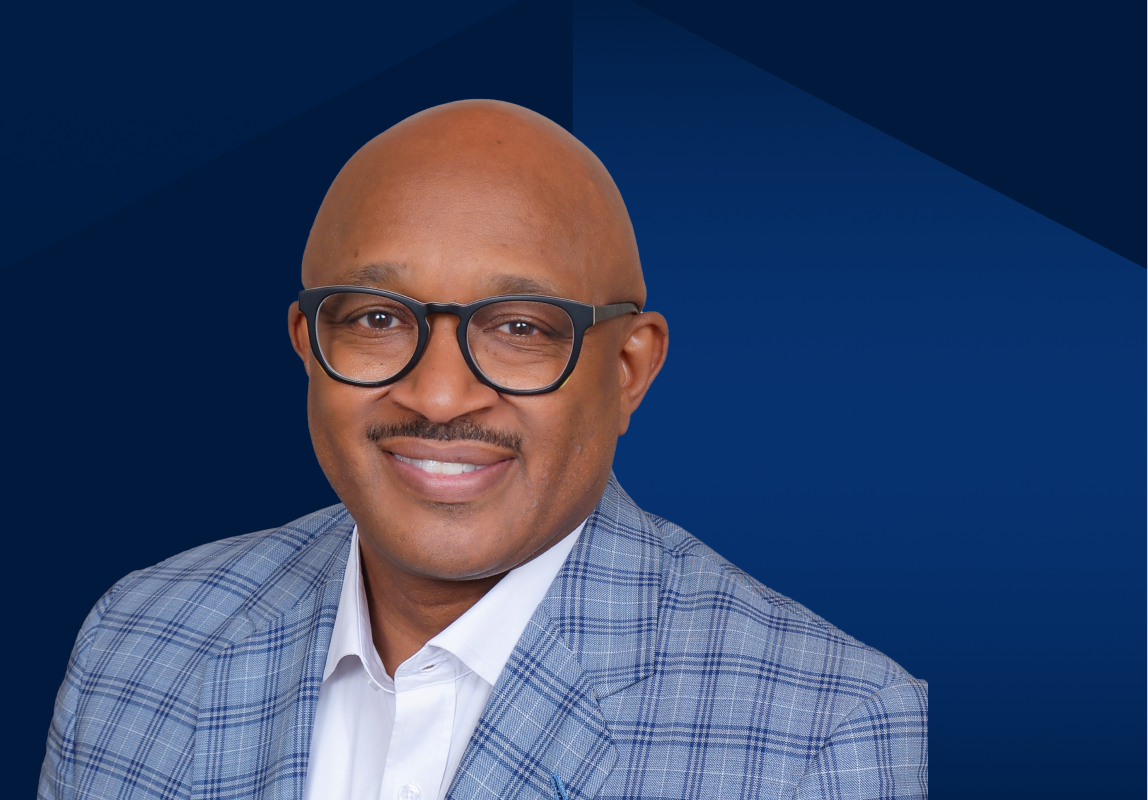
Long before Tim Greenfield led private equity deals or launched Demopolis Equity Partners, he was pushing a lawn mower through the neighborhoods of Detroit, working for a small, Black-owned landscaping business. It was his first job – and his first lesson in the grit, resourcefulness, and customer-first mindset that’s required to succeed as an entrepreneur.
That early exposure to small business operations left a lasting impression on Greenfield, shaping both his work ethic and his understanding of what it takes to grow something from the ground up. It’s a perspective that never left him, even as he went on to earn engineering degrees from the University of Michigan and Northwestern, as well as an MBA from the Kellogg School of Management.
Today, as Founder and Managing Partner of Demopolis Equity Partners, Greenfield brings that same hands-on, entrepreneurial mindset to investing. “Mowing lawns, raking leaves, etc., in the summer heat from sunup to sundown,” Greenfield recalls. “It certainly helped develop my work ethic.”
B2B-Focused
Demopolis Equity Partners makes control buyout investments in lower middle market B2B technology companies, particularly in fintech and e-commerce. “We avoid anything that requires massive marketing spends,” explains Greenfield. “Even in cases like payments businesses that reach end users, our customers are banks and credit unions – so it’s still B2B.”
What sets Demopolis apart is its operator-first DNA.
“We’re not your traditional private equity firm of MBAs from Wall Street. Our team includes former CEOs, CROs, CFOs, and COOs. That operating experience is central to how we add value. We’ve grown our way to strong returns – without relying heavily on leverage.”
Tim Greenfield, Founder and Managing Partner

Demopolis complements this hands-on experience with top-tier strategic thinking. “Several of us are McKinsey alums,” Greenfield notes. “Bringing that level of strategy to a $15 million company creates enormous impact – especially around pricing, go-to-market clarity, and competitive positioning.” The firm is currently investing from its debut fund, with two portfolio companies and a third deal in the final stages of closing. “Our approach isn’t flashy. It’s small, systematic improvements that drive sustainable growth,” Greenfield says.
Demopolis Equity Partners’ investment in Tyfone, a digital banking company, demonstrates how the firm leverages thematic sourcing and operational expertise to create value. “We start with a thematic approach,” explains Greenfield. “The Tyfone thesis was grounded in our proven capabilities in bank tech. We’d previously sold Payveris – a similar company – to KKR for 16 times revenue and a 6x return.”
That prior success validated a repeatable strategy: build channel partnerships to reduce customer acquisition costs and rapidly scale. “At Payveris, we built 30 channel partnerships. That meant 30 other teams were selling our product, dramatically reducing customer acquisition costs and expanding our reach.” Tyfone fits that same mold. Riding digital adoption tailwinds post-pandemic, the firm recognized growing demand among banks for modern, mobile-first experiences. “Even my mom started banking on her iPad during the pandemic,” Greenfield notes. “Banks knew they had to invest in digital.”
Beating the Big Names
Before founding Demopolis Equity Partners, Greenfield built his reputation as the driving force behind a successful independent sponsor platform. Initially recruited to join the sponsor, he quickly rose to run the entire operation. Over the course of ten deals, the team turned a modest $24 million cost basis into $115 million in returns – nearly a 5x multiple. But despite the strong outcomes, Greenfield saw the limitations of the model first-hand. “We knew we could build value,” he says, “but the lack of capital made it difficult to scale companies the way we envisioned.”
One such example was Innerworks, a B2B eCommerce company in the product information management (PIM) sector. Greenfield and his team grew the business from $5 million to nearly $35 million in just three years, achieving an 8x return on exit. Yet even that success came with frustration. “If we had more capital, we could’ve rolled up the entire industry,” he explains. “We were growing at a 45% CAGR and were ranked No. 1 by Gartner and Forrester – beating IBM and SAP. That exit helped build our track record, but internally, we knew we left value on the table.”
That realization, along with a similar experience at Payveris, sparked the decision to evolve from an independent sponsor into a committed capital private equity firm. “We bootstrapped every deal and still succeeded,” Greenfield says. “Imagine what we could do with committed capital.” The move would allow them to go beyond proving their ability to add value deal-by-deal and start institutionalizing their strategy at a higher level.
Andre Rice, President of Muller & Monroe Asset Management (M2AM) in Chicago, provided key early support that positioned Demopolis as an institutional-quality offering. “M2AM’s willingness to commit the time and resources to complete thorough due diligence and negotiate institutional terms laid the groundwork that positioned us to have serious discussions with other investors,” Greenfield recalls.
“We’ve had the good fortune to have relationships with investors who were willing to do the work to understand how we create value and what differentiates us. CI Financial was our first anchor investor and committed the resources and time to really get under the hood. The size and timing of CI’s commitment made a huge difference. CI essentially warehoused our first deals.” According to Greenfield, that is what drove the firm’s early momentum. With committed capital behind them, Greenfield and his long-standing team – many of whom had worked together for nearly a decade – could now operate with greater strategic clarity and consistency.
Even the firm’s name reflects a deeper story. “One of our investors asked where I was from, and my partner said Alabama – Demopolis, to be exact,” Greenfield shares. “Most people say Detroit because that’s where I grew up, but I was born in Alabama before my parents moved north as part of the Great Migration.” The name’s meaning – “City of the People” in Greek – resonated deeply. “It spoke to our mission, our roots, and our values,” he adds.
More than Capital
Demopolis Equity Partners’ partnership with TPG NEXT marked a significant milestone in its evolution from an independent sponsor to an institutional-grade fund manager. “TPG is not just another LP – they’re a $220 billion global firm with resources most Fund I managers can only dream of,” says Greenfield. Although TPG NEXT typically backs funds from day one, Demopolis was already operational when the partnership was formed. “They were our third investor,” he notes. “But the opportunity to align with a platform with that scale and brand value was too important to pass up.”
In addition to capital, TPG brings institutional support. “Most emerging managers are backed by passive limited partners,” Greenfield explains. “But very few partner with a global PE firm with deal teams and a deep deal pipeline.” TPG can now hand off smaller deals – those below its minimum deal size – to Demopolis. “That’s powerful deal origination,” he says. “We play in the $10–40 million revenue range, and they give us access we wouldn’t have otherwise.”
Launched through an anchor commitment from CalPERS, TPG NEXT provides strategic minority capital and custom operational support to help emerging managers establish, build, and scale their firms. Through the alliance, Demopolis also gained access to TPG’s fund administration infrastructure. “We were already operating at a high level, but there’s a difference between being good and being TPG–good,” Greenfield says. “With their support, we’ll be at that level in six months. Few Fund I firms can say they’re able to provide that kind of institutional-grade operational quality so early.”
The relationship has been mutually beneficial. “Tim and the Demopolis team bring a distinct blend of expertise, insight, and vision shaped by decades of investing, operations, and leadership experience,” says Pamela Pavkov, Managing Partner, TPG NEXT.

“With its roots in the fast-growing B2B technology sector and a value-creation playbook built on the team’s proven record of delivering growth through operational enhancements, Demopolis continues to stand out as a differentiated partner for high-potential fintech and e-commerce businesses. We’re energized by what we’ve already achieved and are proud to support the firm as it continues to grow its investor base and portfolio.”
Pamela Pavkov, Managing Partner, TPG NEXT
Challenges and Opportunities
The current macro environment has created both challenges and opportunities for Demopolis. “We invest in mission-critical software – things banks can’t just turn off,” Greenfield says. “But even then, you’re seeing muted growth. Banks may delay switching providers just because the market feels uncertain.” To navigate that, Demopolis ensures its companies are well-capitalized and prepared for longer sales cycles and slower growth periods.
But Greenfield believes this is a unique moment for emerging managers. “A lot of firms built their returns with cheap debt. That playbook doesn’t work anymore,” he says. “Debt is expensive now. If you built your strategy around leverage, today’s market is tough.” In contrast, Demopolis generates value through strategic and operational improvements rather than financial engineering. “We don’t just wait for exits – we create them,” Greenfield explains. “We work on pricing, go-to-market, cost structures – all the levers that drive performance in uncertain markets.”
Being a Fund I firm is also an advantage. “We currently have two portfolio companies, and both are in essential sectors,” he says. “I’d rather be in our position than sitting on 20 companies you’re not sure about.” With valuations down and growth muted, Demopolis sees this as the perfect time to buy.
“The best exits start with great entry points. If you have the capability to grow, which we do, this market is an opportunity.”
Tim Greenfield, Founder and Managing Partner

Still, the current fundraising environment poses challenges. “Three years ago, we might have been over-subscribed,” he admits. “Now, the denominator effect and political uncertainty have made it harder.” But Greenfield remains confident in the long-term vision. “There are guardrails in our investment approach. We’re built to not just withstand this moment but to thrive in it.”
Focused on Consistency
As for what comes next, Greenfield has no intention of chasing massive fund sizes. “We’re not trying to become a $5 billion fund,” he says. “When you go that big, you stop doing the kinds of deals we specialize in.” For Demopolis, the magic lies in the lower middle market – companies with revenues under $50 million, where inefficiencies are still prevalent, and growth can be hands-on and transformational.
“You’re not going to find businesses with $100 million in revenue that haven’t raised prices in years,” Greenfield explains. “But that’s what we see every day at the smaller end. That’s where we bring value.” Demopolis was built to serve that segment, and Greenfield intends to stay true to that mission. “We’re not chasing size. We’re chasing consistently strong performance.”

